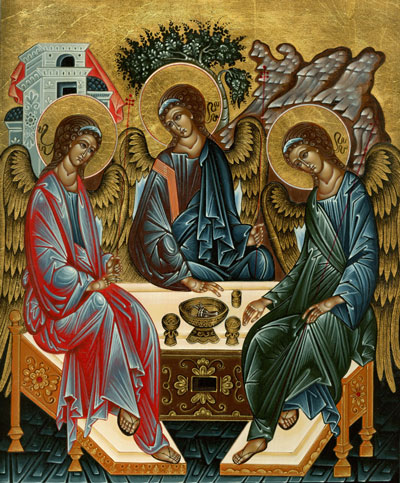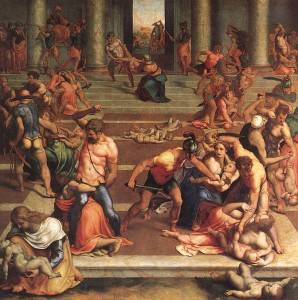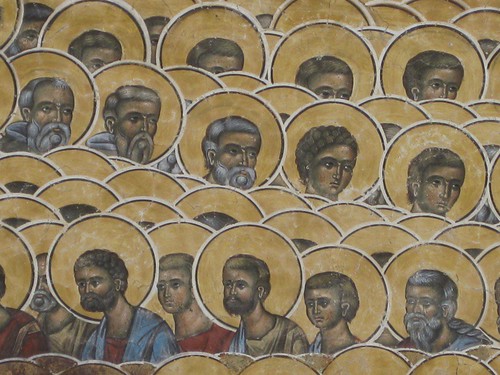
Blessed is the King who comes in the name of the Lord! Peace in heaven and glory in the highest! (Luke 19:38)
On Sunday of Holy Week, Jesus entered Jerusalem on a colt, the foal of a donkey, in fulfillment of the Old Testament prophetic word (Zech. 9:9-12). This unique day will be called Palm Sunday in the Christian calendar and is often referred to by commentators as Jesus’s triumphal entry (Matt. 21:1-11; Mark 11:1-1). Archbishop Craig Bates of the Charismatic Episcopal Church wrote, “The triumph however is not because the crowds declared Him King but because He was to take upon Himself the sin and suffering of the people and win the victory when God raised Him from the dead.” Jesus’s entry was a triumph not because all of Jerusalem turned out for the parade giving him the red carpet treatment, but because his death and resurrection in Jerusalem would defeat our greatest foes: sin, death, and the devil.
On that fateful day, and during the coming week, the inhabitants of Jerusalem would face a choice: demand that Jesus be Israel’s earthly king elevating the country to renewed worldly glory, or repent recognizing that their real problem was a heart problem. Israel’s real need was not deliverance from the Roman oppression, but a deliverance from themselves. Their selfishness, sin, and pride were bringing about the destruction of Israel’s life in God, not the hated Romans. The resurrection of Israel’s glory under King David and Solomon would not bring salvation, only the work of the Holy Spirit could restore Israel’s hope in God (Ezek. 36:26-27).
Holy Week reminds us once again that our problem is not others’ sins, weaknesses, and frailties. Our biggest problem is us and only by turning to Jesus can our lives be transformed.
We must recognize that our essential problem is not our parents, our economic background, our upbringing, our circumstances, our bosses, etc. No, our greatest problem is us that great trinity of me, myself, and I. Our selfishness, our self-absorption, our self-concern, and our self-conceit reap utter destruction. Sin is selfishness evidenced through our willful thoughts, words, or actions involving a choice in which we consider ourselves more important than God or anyone else. The foundation of sin is our selfishness.
Jesus rode that colt over the Mount of Olives into Jerusalem to die on the Cross. He died so that we might be freed from ourselves (2 Cor. 5:14-15; Phil. 2:5-11). He came to conquer our deepest need: selfish, greedy, and prideful hearts. Jesus’s death on the cross transforms our lives: he bears our sin, shame, and guilt away.
The Palm Sunday choice:
1. Do we want a Jesus who comes to fix our problems or do we want a Saviour to change our hearts? Hosanna, save us (v. 10). What we need most is not a deliverance from our circumstances (i.e., enemies, problems, relationships, etc.), but a salvation from ourselves (i.e., our selfishness, pride, demands, etc.) We tend to play the victim when what we need is repentance and a change of heart.
2. Do we worship Jesus even when the crowd does not understand? We live in a secular culture that is becoming increasingly hostile to the Gospel, our culture wants to make Jesus into a postmodern, super-tolerant, pluralistic image of themselves. What happens when Jesus demands to be Lord, when he declares himself to be the exclusive savior of the world, what happens when he bids us to come and die to ourselves and follow him?
3. Will we only follow Jesus when life is going well? Where will we be on Good Friday when it seems that all that Jesus has taught and said is evaporating before our eyes? Will we trust him even when our world is crashing down around us? Will we trust his words and promises that death will not hold him down?
4. Do we understand that political fights will not fulfill our deepest needs? Our culture needs hearts transformed by the Gospel to value Biblical marriage, Christian sexual morality, and religious freedom.
Conclusion: Will we accept the challenge? Allow Jesus to be the Lord of our lives or go the way of the offended, angry world. The same world of expectation, resentment, and fear that placed Jesus on the Cross.
Jesus went to Jerusalem to announce the Good News to the people of that city. And Jesus knew that he was going to put a choice before them: Will you be my disciple, or will you be my executioner? There is no middle ground here. Jesus went to Jerusalem to put people in a situation where they had to say yes or no. That is the great drama of Jesus’ passion: He had to wait upon how people were going to respond.
Henri J. M. Nouwen, “A Spirituality of Waiting,” The Weavings Reader









